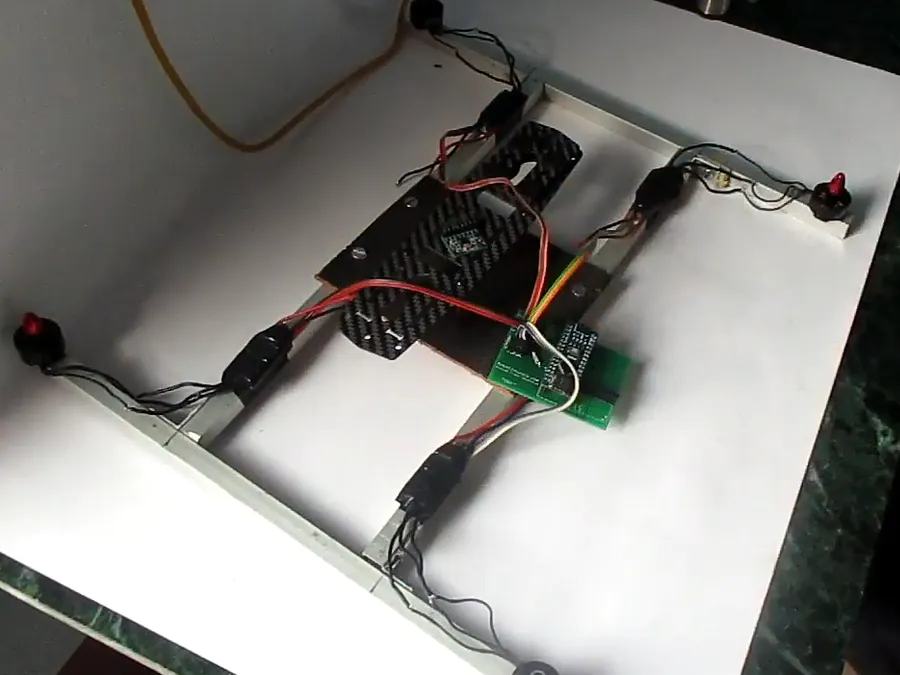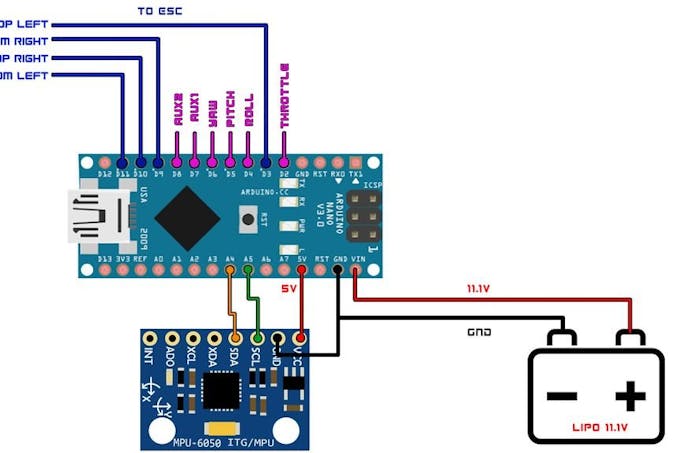Search This Blog For Great Content
Arduino Drone
Step 1: Flight Controller Designing
Step 2: Building a FrameStep 3: Attaching the Flight Controller Onto the FrameFlight Controller Code
Uploading the code

how to make 3d printer

33 Types of Fashion Styles with Pictures

The Hair Loss Conversation Wide Open

The 50 Best Haircuts for Women In 2021

Arduino Drone With GPS
Contact Form
Labels
Featured Post

How to Take Care of Your Hair During the Winter Season(hair care tips for winter)
How to Take Care of Your Hair During the Winter Season(hair care tips for winter) W…
Blog Archive
Brand Logos
Contact Info
Lorem Ipsum is simply dummy text of the printing and typesetting has been the industry's.
Contact List
Brand Promotion
Ut enim ad minima veniam, quis nostrum exercitationem ullam corporis suscipit.
Web Development
Ut enim ad minima veniam, quis nostrum exercitationem ullam corporis suscipit.
Web Design
Ut enim ad minima veniam, quis nostrum exercitationem ullam corporis suscipit.
App Design
Ut enim ad minima veniam, quis nostrum exercitationem ullam corporis suscipit.
We Are Infity, We Are Best.
It is a long established fact that a reader will be distracted by the readable content of a page when looking at its layout. The point of using Lorem Ipsum is that it has a more-or-less normal distribution of letters, as opposed to using 'Content here, content here'.
Pages
Contact us
Popular Posts
Popular Posts






![18+Download All Ladies Do It (1992) Full Movie [In Italian With English Subs] WEB-DL 480p [350MB] || 720p 10BIT HEVC [500MB] || 720p [800MB] || 1080p [2GB]](https://blogger.googleusercontent.com/img/a/AVvXsEgp5Z5uySC3woxAW9a2FV1jV3HAoAFfldsvOX7rDp6LmwhkKPAnHW1ax-8x9DfuAD1VO-QxZjMD3f306FKxu4R82x_y4Bp4JUhjJ17wf3E3BeTBS3uPOmSgC5b3mYUgaTA605WrYB7lEqe-9erbQTPcQZPWNwfqSpG7k4J09WsYNDvIu-LYy7VpEb6skw=w72-h72-p-k-no-nu)
![Download Red Notice (2021) Dual Audio {Hindi-English} WeB-DL 480p [500MB] || 720p [1GB] || 1080p [3.7GB]](https://blogger.googleusercontent.com/img/a/AVvXsEitiYVZrfz3LRXaBbIo8hY9-1DAZf-OnTeuwFprvV0QKlP09hCZPgwRDYDwrTLJh1TByJfBu5xv0gGss_DfNDkDhZuhtnKzpnhenPVSQgK84ig4oUKtiOP36EyFWWxdAkO8AhSTV_R8i1dGaXHiy6ReOvzuHBHNBXGbb4yubY-WCfUuk178t30IysDfiA=w72-h72-p-k-no-nu)
![Download Eternals (2021) CAMRip V2 [Hindi & English] 480p [450MB] || 720p [1.1GB]](https://blogger.googleusercontent.com/img/a/AVvXsEjSk3eYxYp0OsH_bENzmEPcCS1rHDOobr74C0XIwQ1lgfO9BZi0hGIxSvEEHtypT3gkBRbSVAfhR9yUhTOJuw-jIYFmh3BBv6iGacXOMmikzCk9jD6Seha46-dpfDUY6bo9ZA60Ivt7uns3xNyoVpTtTejnaic6UzyhtcPuasTGQQV1YlCdBOpk7T1rCg=w72-h72-p-k-no-nu)

0 Comments